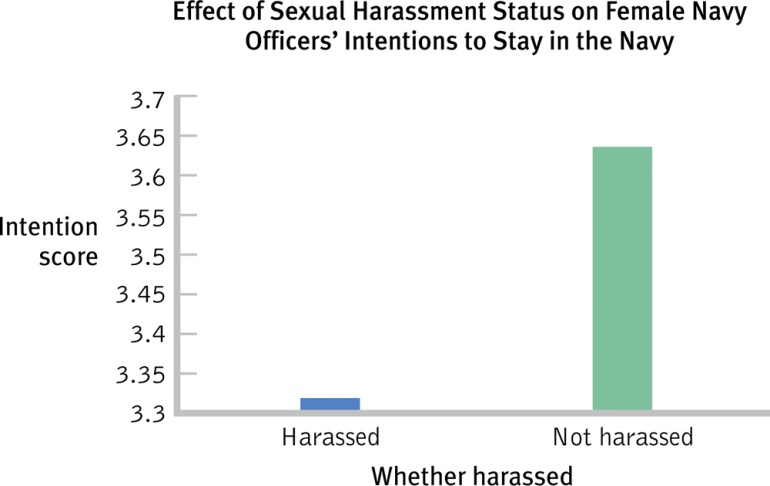PROCEDURES FOR OBTAINING APPROVAL FOR CONCURRENT UNDERGRADUATE AND GRADUATE
ALL SCHOOL PROCEDURES AND POLICIES FROM THE STUDENTILLICIT DISCHARGE DETECTION AND ELIMINATION FIELD PROCEDURES AND
Procedures for Varying Shared Ownership Leases Background
(REPORT TEMPLATE) INDEPENDENT ACCOUNTANT’S REPORT ON APPLYING AGREEDUPON PROCEDURES
012808 PROCEDURES FOR ARCHIVING BACKING UP AND DELETING ARCHIVED
03201 – CHAPTER 10 POLICY AND PROCEDURES MANUAL ADULT
Procedures for Obtaining Approval for Concurrent Undergraduate and Graduate Degree Programs
Procedures for Obtaining Approval for Concurrent Undergraduate and Graduate Degree Programs
Concurrent undergraduate and graduate degree programs can provide opportunities for well-qualified ISU juniors and seniors to apply for a program leading to both a masters and bachelors degree at the end of a fifth year of study. Students interested in research may apply for a graduate research assistantship during their fourth and fifth years of study. Individualized concurrent degree programs are available.
The following material describes the procedures to obtain approval for a recognized concurrent undergraduate and graduate degree program when both the undergraduate and graduate majors have already been approved. For students pursuing a concurrent undergraduate bachelor’s degree and graduate degree, a maximum of 6 graduate credits can be double counted for both the bachelor’s degree and the graduate degree subject to the Program of Study committee approval.
The proposal will be reviewed by the Graduate Curriculum and Catalog Committee, by the Graduate Council, by the Graduate College, and by the Dean of the Graduate College.
The Proposal for Concurrent Degree Programs
The proposal for concurrent degree programs should include the following information:
Name of the programs or majors:
BS in Cyber Security Engineering
MS/MENG Cyber Security
Name of the degrees:
BS in Cyber Security Engineering MS Cyber Security
BS in Cyber Security Engineering MENG Cyber Security
Name of the department(s) which administer(s) the program:
Information Assurance Center and Electrical and Computer Engineering
Rationale for the concurrent degree program
The cyber security graduate program is a logical pathway for undergraduates to develop additional skill and knowledge which will lead to enhanced employment in cyber security. The graduate degrees in Cyber Security are a logical next step for students who are completing their undergrad degree in cyber security engineering. This will open up more employment opportunities at organizations, including research labs, that need a deeper theoretical knowledge of cyber security than is found in our undergrad degree.
Admission procedures and requirements
BS/MS BS/MENG ADMISSION PROCEDURE
Meet with your academic adviser to discuss the concurrent program. If you have additional questions about the concurrent degree program, you may meet with the ECpE Student Services Manager.
Fill out a Concurrent Enrollment for Undergraduate/Graduate Degrees Form from the Graduate College (under Concurrent Student Request Forms section).
Follow steps number 2 and 3 on the Concurrent Enrollment for Undergraduate/Graduate Degrees Form and provide all documentation to the ECpE Student Services Office. The department will route the form to get all necessary signatures.
BS/MS BS/MENG ADMISSION REQUIREMENTS
Cumulative GPA of 3.0 or better
BS/MS Candidates will seek a Master of Science (with or without thesis) degree
BS/MENG candidates will seek a coursework only Master of Engineering degree
Requirements of the program
BS/MS and BS/MENG PROGRAM REQUIREMENTS AND GUIDELINES
Students admitted to the concurrent BS cyber security engineering MS/MENG Cyber Security degree program are permitted to double count up to 6 credits of graduate level coursework taken while an undergraduate (during the semester of concurrent enrollment) toward both their undergraduate and graduate program of study. All courses in the MS / MENG graduate program are valid technical electives in the undergraduate degree. Therefore, students who enter the concurrent program who decide to stop pursing the graduate degree will still be able to complete their undergraduate degree. The course requirements for the MS/MENG degrees is shown below.
-
Course
Credits
Course Title
Core
InfAs 530
3
Advanced Computer Networking
InfAs 531
3
Computer Security
InfAs 532
3
Information warfare
InfAs 534
3
Ethical and Legal Issues in Computer Security
2 out of 4:
InfAs 533
3
Cryptography
Cpr E 535
3
Steganography
Cpr E 536
3
Forensics
Cpr E 537
3
Wireless Security
InfAs 632
3
Capstone course (required for the MENG degree)
Electives:
Department list
6-9
Any 500 level course in CprE or CS
MS - One of two options:
Cpr E 599
3
Creative Component (non-thesis MS)
Cpr E 699
6
Thesis based MS
Students also may transfer in up to 6 credits of graduate level coursework taken while an undergraduate that will NOT be counted toward their undergraduate program of study; the coursework must have a grade of B or better
Concurrent enrollment can be no longer than two semester
Students in the concurrent BS cyber security engineering MS Cyber Security program will have a major professor only for non-thesis and will have a major professor and two addition program of study members for a thesis.
Students in the concurrent BS cyber security engineering MENG Cyber security will have the DOGE for the Cyber Security program approve the POS
Expected enrollment
In the past we have enrolled 5 to 10 students a year by having the students fill out the concurrent request form. We expect the enrollment to increase by making it easier. The interest in cyber security in increasing along with the job opportunities. More students are taking undergraduate courses in cyber security and with the minor in cyber security, which is taken by computer and software engineering we expect 10 to 20 students a year.
If not already addressed, answer the following:
How will the undergraduate degree plan and graduate program of study be developed? (see above)
When will the student have a major professor? The students will have a major professor by the end of their first concurrent semester.
Will graduate assistantships be provided?
Students are eligible of graduate assistantships.
Will a thesis be required?
Yes, for the BS/MS with thesis, creative component is required for BS/MS non-thesis, BS/MENG is coursework only
Who will be responsible for the administration of the program?
DOGE of the cyber security graduate program.
How much time is required to complete the program? Show a sample semester-by-semester plan.
For both the thesis and creative component options, up to 6 credits total will be double counted toward the undergraduate and graduate programs of study. Students may enroll in the concurrent degree program in the fall or spring semester. Below is an example of the credit hours BS/MS concurrent program students may take during the fall and spring semester:
Thesis Option (Entering Spring of Senior Year)
Spring of senior year: 6 credits undergraduate/graduate coursework + 6-9 credits undergraduate coursework
Fall (after BS completed): 9 credits graduate coursework + 3 credits research
Spring (after BS completed): 6 credits graduate coursework + 6 credits research
Non-thesis/Creative Component Option (Entering Spring of Senior Year)
Spring of senior year: 6 credits of undergraduate/graduate coursework + 6 credits graduate coursework
Fall (after BS completed): 12 credits graduate coursework
Spring (after BS completed): 9 credits graduate coursework + 3 credits creative component
MENG
Spring of senior year: 6 credits of undergraduate/graduate coursework + 6 credits graduate coursework
Fall (after BS completed): 12 credits graduate coursework
Spring (after BS completed): 9 credits graduate coursework + 3 credit capstone course
Will students be allowed to double count credits? If so, how many?
Yes, 6
9. Attach memos showing approval by appropriate department and college committees, faculty, and administrators.
10. Proposal Contact
Doug Jacobson
GC 2/12
10122021 26 SEDIMENT LABORATORY PROCEDURES REDWOOD SCIENCES LABORATORY USDA
10A NCAC 89C 0604 PROCEDURES (A) THE DIVISION DIRECTOR
171332 §17133—PROCEDURES 171332 RECONSIDERATION OF DENIED CLAIMS §17133 PROCEDURES
Tags: approval for, showing approval, obtaining, undergraduate, procedures, concurrent, approval, graduate
- POSITION BACKGROUND INFORMATION IMPORTANT NOTE FOR BUMC UNTIL POSITION
- CITIZEN COOPERATIVE BANK LTD TRANSPORT NAGAR JAMMU SNO
- ANEXO 7 B)– REFORMULACIÓN PROYECTO MANTENIMIENTO 1 ENTIDAD 2
- “REPETITIO MATER STUDIORUM EST” ( “LA REPETICIÓN ES LA
- ZAŁĄCZNIK NR 3 DO KARTY USŁUG NR GN1062019 KIELCE
- COMUNE DI MONTERONI DI LECCE PROVINCIA DI LECCE IMPOSTA
- ESTRUCTURA BÁSICA DE PRESENTACIÓN DE PROPUESTA DE PROYECTOS AL
- OBLIGACIONS FISCALS IMPOST SOBRE SOCIETATS SERVEI DE CREACIÓ DEMPRESES
- МУНИЦИПАЛЬНОЕ ОБРАЗОВАНИЕ ГОРОД УРАЙ ХАНТЫМАНСИЙСКИЙ АВТОНОМНЫЙ ОКРУГ –
- t bộ tư Pháp số ttr btp Cộng hoà
- 2020 APPLICATION GUIDE FOR INTERNATIONAL CHINESE LANGUAGE TEACHERS (CONFUCIUS
- 2 ANEXO 1 FORMATO DE RESOLUCIÓN ADMINISTRATIVA INSTITUCIONAL PARA
- STAYING HEALTHY AND SAFE THE WESTON GROUP IS DEDICATED
- 2007 – 08 ANNUAL PARKING REPORT NETWORK MANAGEMENT PARKING
- LJUBLJANA 28 8 2019 NOVINARSKA KONFERENCA OB PREDSTAVITVI AKCIJ
- 12 TEMMUZ 2008 CUMARTESİ SAYI 26934 BAŞBAKANLIK (HAZINE
- PROGRAMACIÓN BYME NATURAL SCIENCE 4 CAM BYME NATURAL SCIENCE
- JORNADAS DE OTOÑO DE LA SOCIEDAD CASTELLANO MANCHEGA DE
- USER ALLENR USER PAGE ACCESS LOCATION DALLAS MODULE ALL
- SANTAS Y JUSTAS LIDES LA GUERRA Y EL DIOS
- ALLSPORTS NATIONAL HIGH SCHOOL RECOGNITION APPLICATION NATIONAL FEDERATION OF
- …………………………… SA AA SERVICIO DE ATENCION AL CLIENTE
- THIS DOCUMENT WAS ARCHIVED IN JUNE 2016 BECAUSE IT
- ISTRA DD TRGOVINA NA VELIKO I MALO EXPORTIMPORT NARODNI
- PANDEMI SÜRECI VE DEPREME RAĞMEN YATIRIMLAR DURMADI İZMIR BÜYÜKŞEHIR
- NAME LAB PARTNER THE QUEST FOR OBJECT X STUDENT
- SPORTO KLUBO REKVIZITAI KONTAKTINE INFORMACIJA LIETUVOS MOTOCIKLŲ SPORTO FEDERACIJAI
- ZÁKLADNÁ ŠKOLA ODBORÁRSKA ULICA Č 1374 NOVÉ MESTO NAD
- MØDEBOOKING UDFYLD VENLIGST DENNE BOOKING OG RETURNER DEN TIL
- LECCIÓN CUATRO VOCABULARIO COMPRENSIVO LA FAMILIA NUCLEAR LA ESPOSAMUJER
REF 2571 MODEL DE CONVENI PER A LA REALITZACIÓ
 1 TEDEN DOPOLDANSKA MALICA KOSILO PONEDELJEK 3012017 KORUZNI KRUH
1 TEDEN DOPOLDANSKA MALICA KOSILO PONEDELJEK 3012017 KORUZNI KRUHANNEX 8 ASSESSMENT OF THE POTENTIAL FOR BETTER MANAGEMENT
 BAB I PENDAHULUAN 1 MAKSUD DAN TUJUAN KERJA PRAKTEK
BAB I PENDAHULUAN 1 MAKSUD DAN TUJUAN KERJA PRAKTEKEXECUTIVE ORDER 12866 SUBMISSION IMPORTANT PLEASE READ
«EL ABURRIMIENTO ES UN PRODUCTO CARACTERÍSTICO DEL MUNDO OCCIDENTAL
CARACTERÍSTICAS DEL TEATRO DE GARCÍA LORCA LA CASA DE
 HUMANITIES LIT – DOUGLASS NARRATIVE 14 NARRATIVE OF
HUMANITIES LIT – DOUGLASS NARRATIVE 14 NARRATIVE OF BYLAW NO 201808 A BYLAW OF THE TOWN OF
BYLAW NO 201808 A BYLAW OF THE TOWN OF PAKIET NR 2 ZAŁ NR 1 ZESTAWIENIE PARAMETRÓW I
PAKIET NR 2 ZAŁ NR 1 ZESTAWIENIE PARAMETRÓW I CHAPTER 3 ICLICKER QUESTIONS 1 SINCE THERE ARE MANY
CHAPTER 3 ICLICKER QUESTIONS 1 SINCE THERE ARE MANY ROCKBRIDGE HUNT NEWSLETTER SUMMER 2002 W ORK DAYS
ROCKBRIDGE HUNT NEWSLETTER SUMMER 2002 W ORK DAYS EL ATLETISMO ES LA FORMA ORGANIZADA MÁS ANTIGUA DEL
EL ATLETISMO ES LA FORMA ORGANIZADA MÁS ANTIGUA DEL REZOLUCIJA EVROPSKOG PARLAMENTA O PROCESU EVROPSKIH INTEGRACIJA SRBIJE B700212011
REZOLUCIJA EVROPSKOG PARLAMENTA O PROCESU EVROPSKIH INTEGRACIJA SRBIJE B700212011WORD ASSOCIATIONS FOR THE 21 SPANISHSPEAKING COUNTRIES (THESE ARE
R 1 REGLAMENTO REGULADOR DE LA EXPEDICIÓN DE LA
CONTENIDO LIBRO METODO PARA LA INVESTIGACION DEL DIAGNOSTICO
 CÓDIGO SFPRY2017126 VERSIÓN 1 TRAS ACUERDO INICIO FIRMADO FECHA
CÓDIGO SFPRY2017126 VERSIÓN 1 TRAS ACUERDO INICIO FIRMADO FECHAMYŚLI NIEUCZESANE STANISŁAW JERZY LEC 1 PRZEZ CAŁE ŻYCIE
 ROMÂNIA JUDEŢUL CLUJ CONSILIUL JUDEŢEAN NR 03062021 CĂTRE
ROMÂNIA JUDEŢUL CLUJ CONSILIUL JUDEŢEAN NR 03062021 CĂTRE